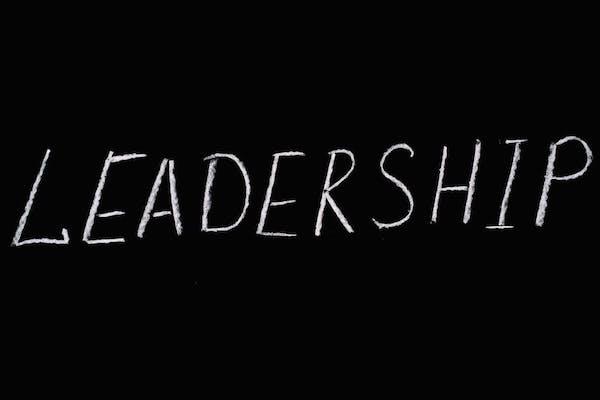
by Michael Timms, author of “How Leaders Can Inspire Accountability: Three Habits That Make or Break Leaders and Elevate Organizational Performance“
The word “accountability” is being used with greater frequency in the news and in social debates these days, quite often to castigate someone in a leadership or high-profile position.
To a great extent, the word “accountability” has been weaponized in our society and has negative connotations. That’s a big problem because, in the last five years that I have been researching, writing, and speaking about accountability, I’ve discovered that it is precisely the willingness to demonstrate personal accountability that differentiates average leaders from exceptional leaders.
Leaders who wish to remain on the right side of the public debate about accountability had better gain a better understanding of the meaning and function of accountability and how it can be used to their advantage.
What Is Accountability?
When media pundits accuse someone of wrongdoing, they often say, “They need to be held accountable!” However, what these commentators are really saying is, “They are to blame and must be punished!” The danger of using accountability as a euphemism for blame and punishment is that doing so teaches people that accountability is a bad thing and that we should fear it.
Another common misconception about accountability is that it is the same thing as responsibility. It is not. Responsible leaders do what is expected of them. Although we want leaders to perform their duties and honor their commitments, we all know leaders who hide behind the veil of responsibility to shield themselves from accountability when things go wrong. Leaders who hide behind responsibility make statements that sound like, “I didn’t do anything illegal, so you can’t blame me for this mess.”
Responsibility is taking ownership of activities. Accountability is taking ownership of results. Understanding this distinction is not only key to becoming an exceptional leader, it is also the first step to create a culture of accountability within your organization.
How Accountable Leadership Works
Accountability is simple to understand but difficult to demonstrate. Personal accountability boils down to three key behaviors, each of which are the exact opposite of how we are predisposed to act.
- Don’t Blame. Blame kills accountability.
- Look in the Mirror. Acknowledge your part in the problem.
- Engineer the Solution. Fix processes, not people.
Accountable leaders resist the urge to blame.
Blame kills accountability in ourselves and in those around us. Unfortunately, when things go wrong, most of us experience a knee-jerk instinct to blame first and ask questions later—or not at all. Our brains prefer simple explanations for problems that don’t incriminate us. Consequently, we have evolved several biases that blind us to external factors that contribute to problems and convince us that the person closest to the problem must have caused the problem. We are quite literally wired to blame.
When we blame other people or circumstances for our problems, two things happen.
- We give away our power to overcome our problems. We can only influence our outcomes to the degree that we believe we contribute to them.
- We encourage those around us not to accept accountability. Nobody will take accountability for problems if they think they will be blamed for them.
Exceptional leaders resist the urge to blame their problems on other people or bad circumstances and focus instead on considering a) all the factors that contributed to the problem, and b) what they can do to fix the problem and improve future outcomes.
Accountable leaders acknowledge how they contribute to problems.
In today’s complex world, problems are rarely 100 percent the result of one person’s actions. Most often, a combination of factors either enabled the problem to occur, made it more likely to occur, or made the consequences more severe. We can use this fact in one of two ways.
- Unaccountable leaders point to all the factors that were outside of their control to explain away problems.
- Accountable leaders first look at how their behavior and decisions contributed to the problem before considering other causes.
If we don’t first look in the mirror for explanations for our problems, we will likely miss important insights and our solutions will likely miss the mark.
Furthermore, a fortuitous by-product of being the first to acknowledge how you contributed to a problem is that doing so makes it safe for others to do the same. Demonstrating accountability encourages a reciprocal response from those you lead.
Accountable leaders focus on fixing processes.
Human beings make mistakes and will always make mistakes. Upon discovering mistakes, poor leaders assume that the person who made the mistake must be broken, so they naturally attempt to fix people by blaming, shaming, threatening, and training them not to be so careless. When those tactics don’t work, the next step is usually firing.
Exceptional leaders recognize that there is almost always room to improve processes or the work environment to reduce the likelihood or severity of mistakes and problems. Accountable leaders encourage their followers to focus on solutions and mobilize them to action by directing their attention on improving systems instead of paralyzing their followers with blame.
Why Accountable Leadership Works
The three habits of personal accountability not only make leaders more accountable, respectable, and effective, they also motivate others to want to take more accountability themselves.
Employees won’t feel the need to point the finger at their teammates when things go wrong if nobody is pointing the finger at them. They will be more inclined to acknowledge their part in problems when their leader is the first to say, “This is how I think I contributed to the problem.” And employees will be empowered to find more reliable and sustainable solutions to problems when their leader encourages them to design better systems to improve future results.
Here is the difference between an unaccountable leader and an accountable one. After former Facebook employee Frances Haugen blew the whistle on Facebook, disclosing internal documents that showed the company knew its apps are causing harm to young people yet continued to prioritize profits over user safety, CEO Mark Zuckerberg released a 1,316-word statement on his personal Facebook page to refute her claims. Not once did he take any accountability for the problem. A response from an accountable leader would have sounded something like this: “Although many of Ms. Haugen’s claims paint a false picture of Facebook, one thing her testimony brought to light is that despite all our efforts to protect young people and reduce misinformation, it is not enough. I am committed to reviewing our safety protocols and to doubling our effort to make Facebook and its apps safer for all users.”
Accountable leadership is the foundation of exceptional leadership. Leaders who embrace the three habits of personal accountability will be able to respond to their critics with integrity and make it easier for those they lead to take more accountability for problems and their solutions.

Michael Timms, author of “How Leaders Can Inspire Accountability“, has dedicated his career to making leadership easier and to helping leaders and organizations reach their potential. He has taught thousands of people in leadership positions how to harness the principles of accountability to transform virtually every aspect of their operations.
via https://www.AiUpNow.com
November 4, 2021 at 09:32AM by Contributor, Khareem Sudlow
